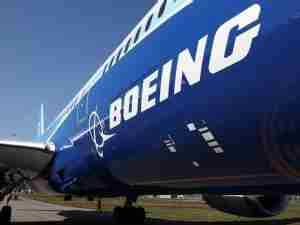TIACA welcomes dialogue, but warns of implementation challenges to new EU air cargo security regs
posted by AJOT | Sep 17 2013 at 05:23 PM | Air Cargo
Under the new rules, all carriers wishing to transport cargo or mail into the E.U./EFTA from a non-E.U./EFTA airport must ensure that an E.U. aviation security validation of their cargo and mail operations has been carried out, at each such airport, by an independent expert. Successful independent validation of a carrier’s non-E.U. airport operations will allow the carrier to be designated as an 'Air Cargo or Mail Carrier operating into the Union from a Third Country Airport' (ACC3). Airlines that have not obtained the necessary validation before 1 July, 2014 will therefore not be allowed to continue transporting cargo or mail into the E.U.
TIACA Chairman, Oliver Evans, said: “While the E.U. views these ACC3 regulations as an important step towards ensuring a more secure and efficient supply chain over the long term, there are significant challenges to implementing them so quickly. Although we welcome the European Commission’s recent outreach to industry stakeholders, there is still little consistency among E.U./EFTA Member States regarding the implementation process, and significantly more outreach is needed between the E.U. and non-E.U. civil aviation authorities.
“TIACA believes it is critical to find ways forward that enhance security but which do not disrupt vital commercial air cargo flows. Moreover, TIACA supports the process of developing standards on a global, rather than regional or unilateral basis. We also fully support recognizing the audit methods of other countries’ civil aviation authorities, similar to the mutual recognition between the E.U., Switzerland, the USA, and Canada as a logical means to accomplish global security effectively and efficiently.”
TIACA encourages the European Commission to maintain vigilance over the regulation’s implementation and continue engagement with the industry, in order to avoid the air cargo supply chain being disrupted on 1, July 2014. “It is essential that airlines and cargo handling organizations continue to take steps to obtain validation before 1 July, 2014, in order to continue transporting cargo into the E.U., but they should advise the E.U. immediately of any significant impediments to undertaking the validation process. As airlines of different nationalities mostly operate out of multiple user facilities in foreign countries, validation and accreditation should be a matter of international recognition to avoid the huge cost and disruption of multiple audits. With less than a year to go until the deadline, continued communication and openness from the European Commission on the availability of accredited validators, and their ability to accomplish this task on time, is absolutely vital,” Evans added.
TIACA has expressed its commitment to participate in continued dialogue between the European Commission and industry stakeholders on the development of risk-based air cargo supply chain security.

